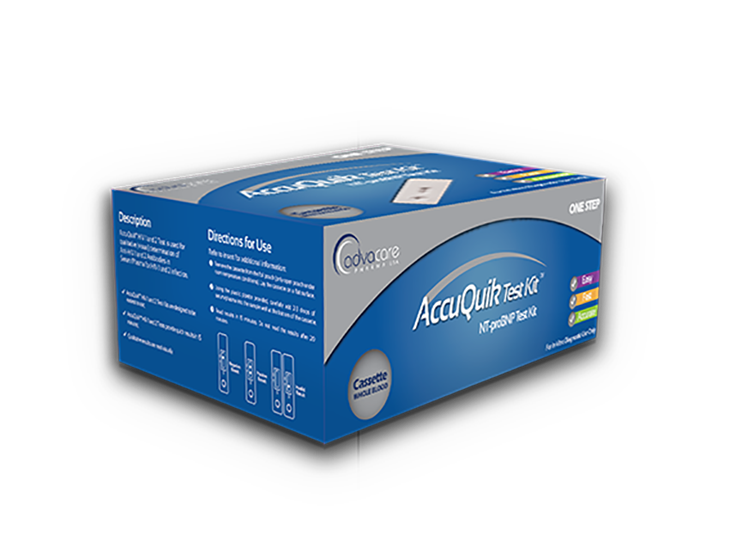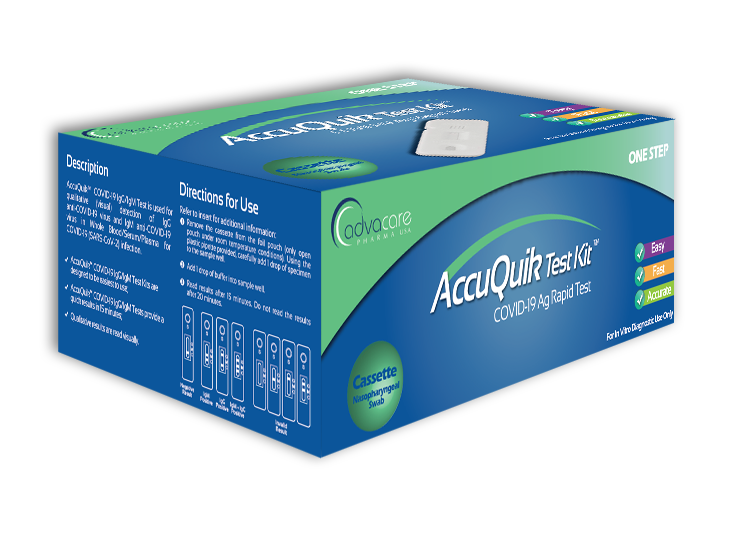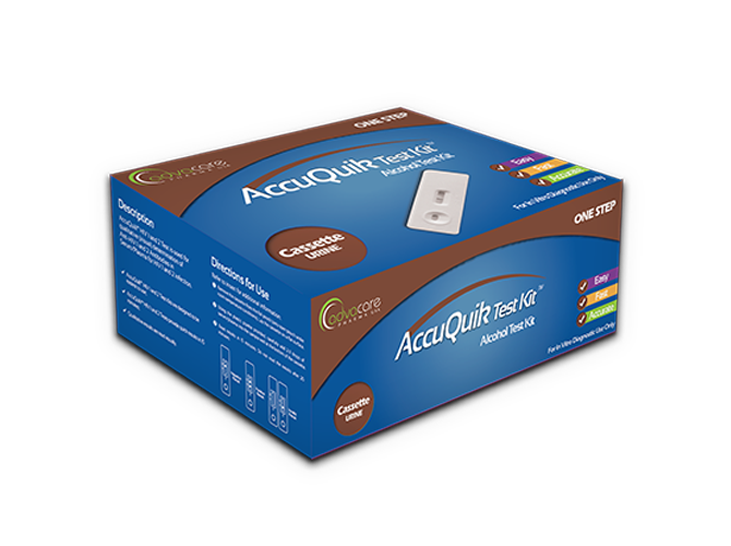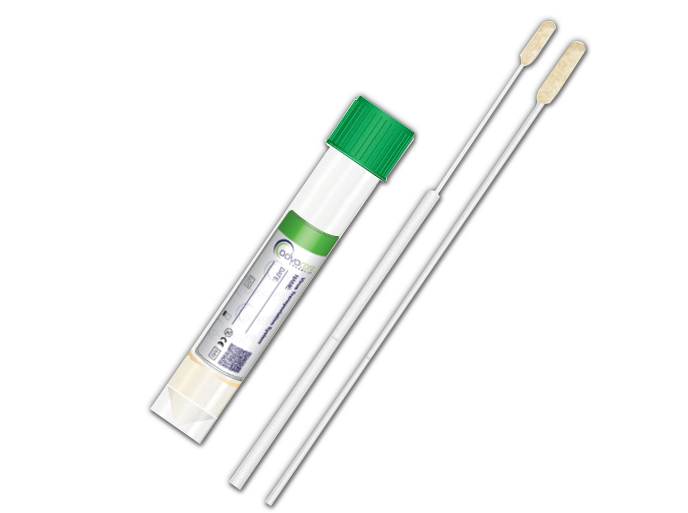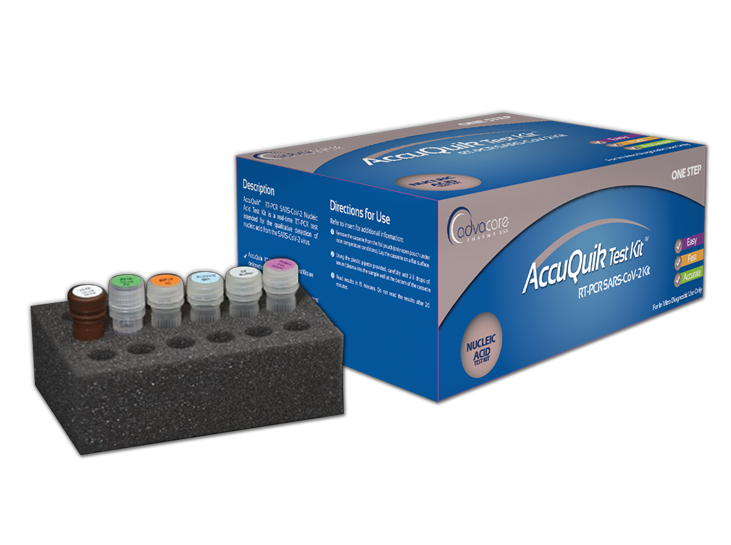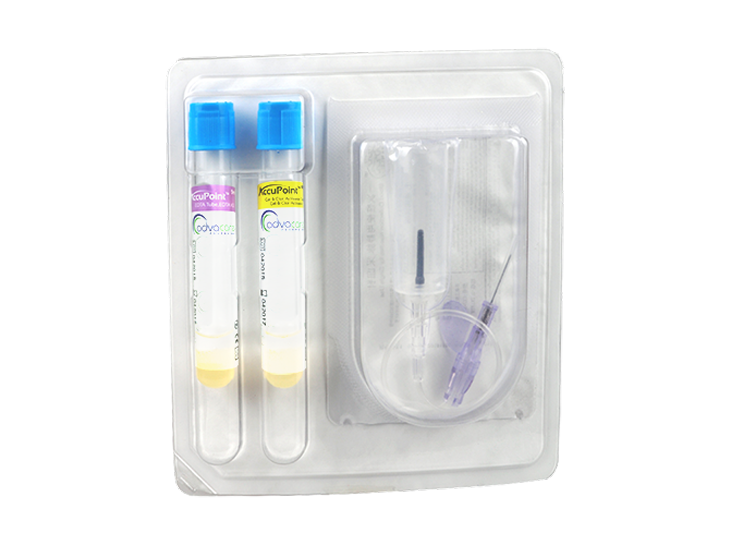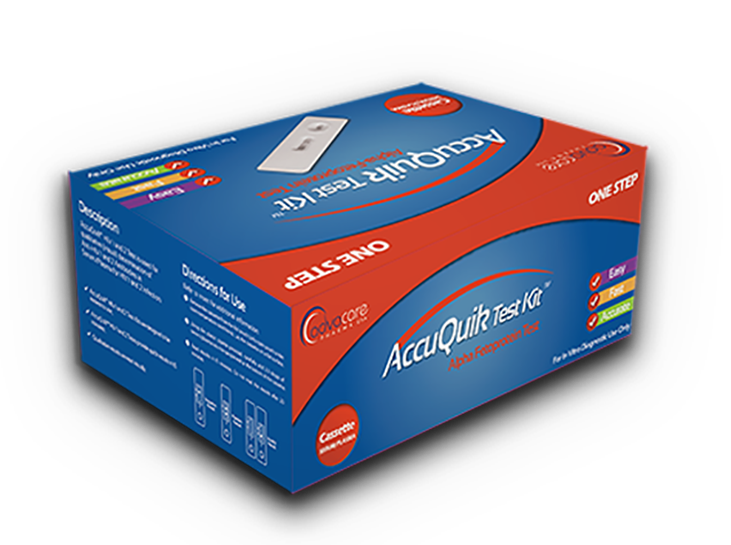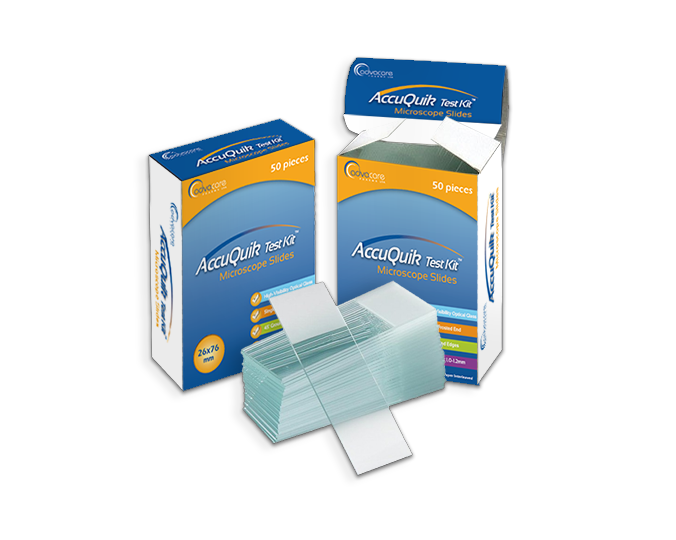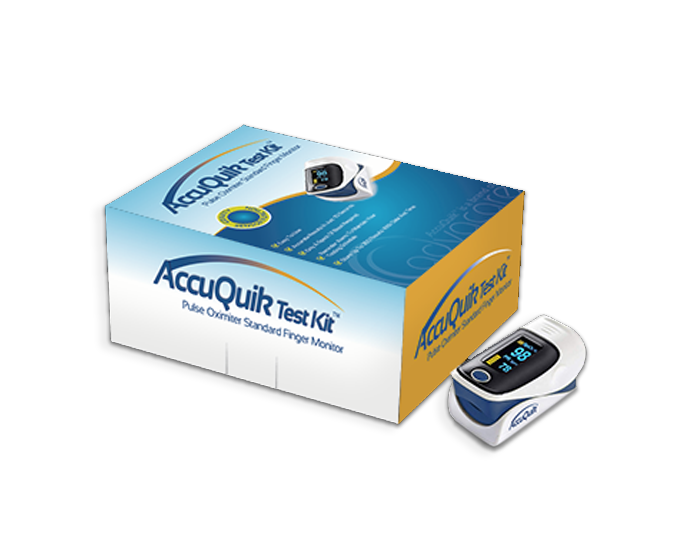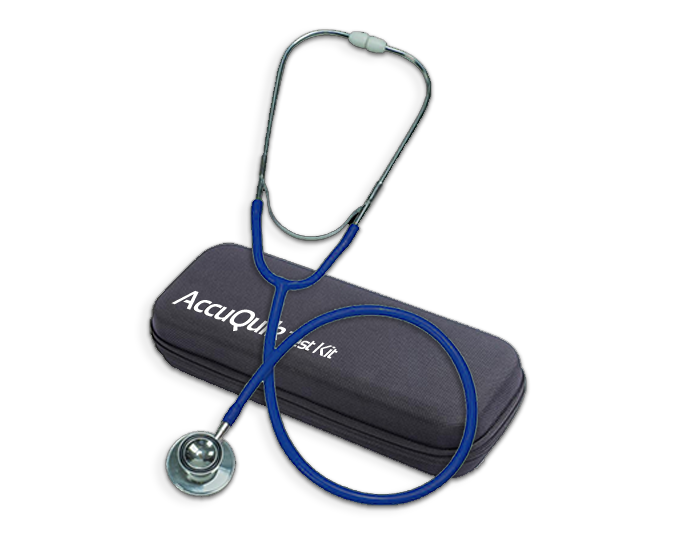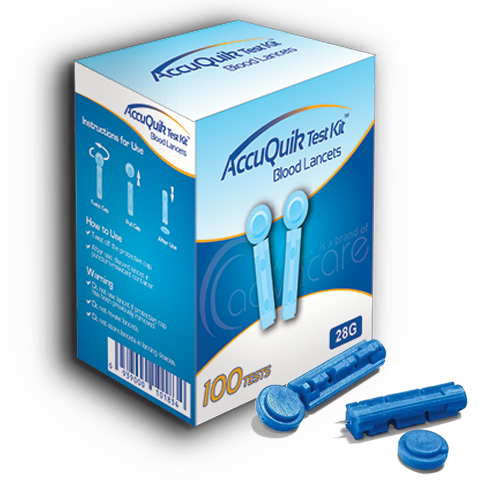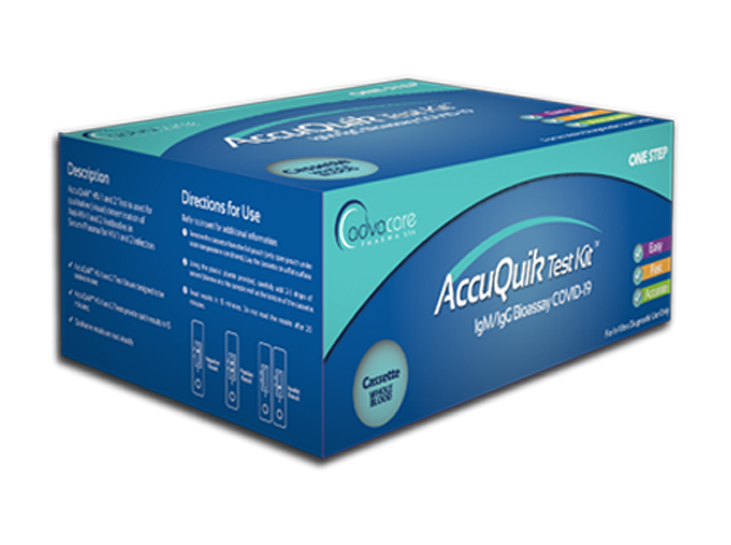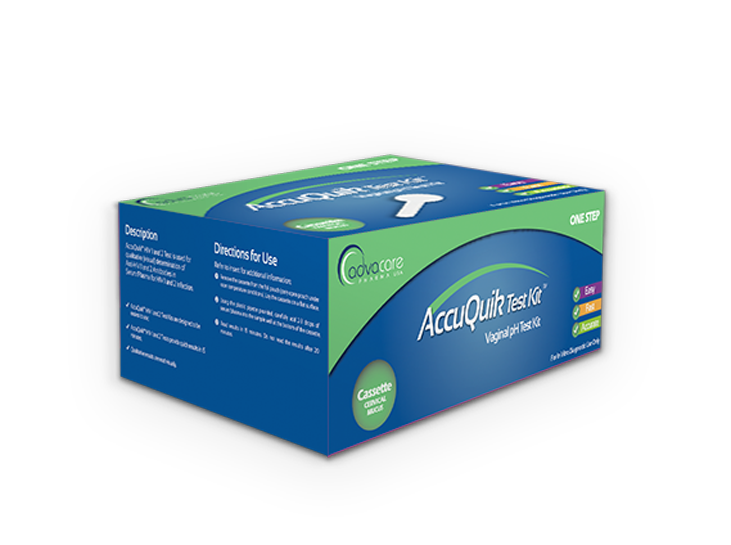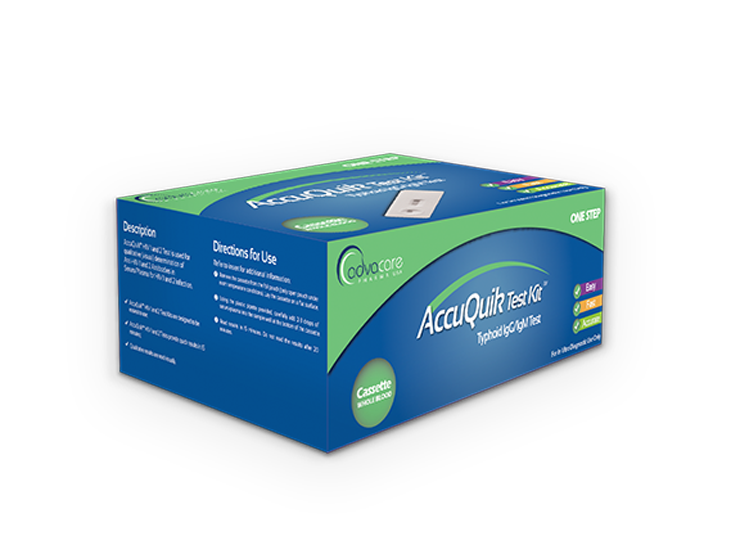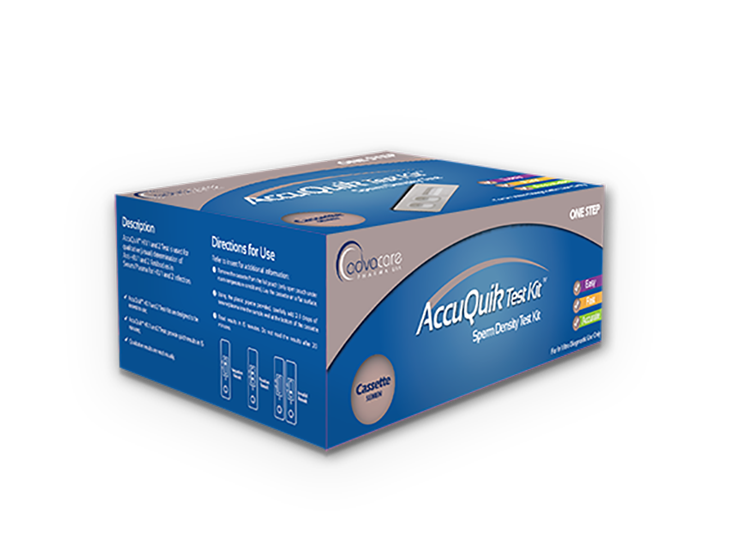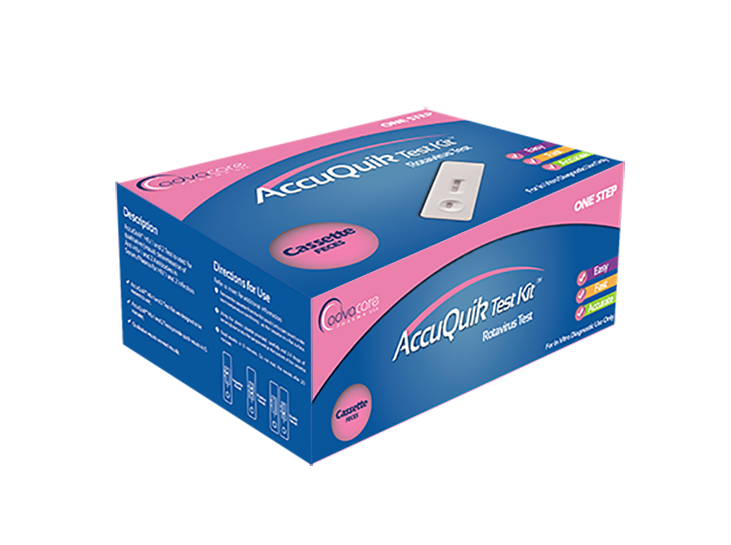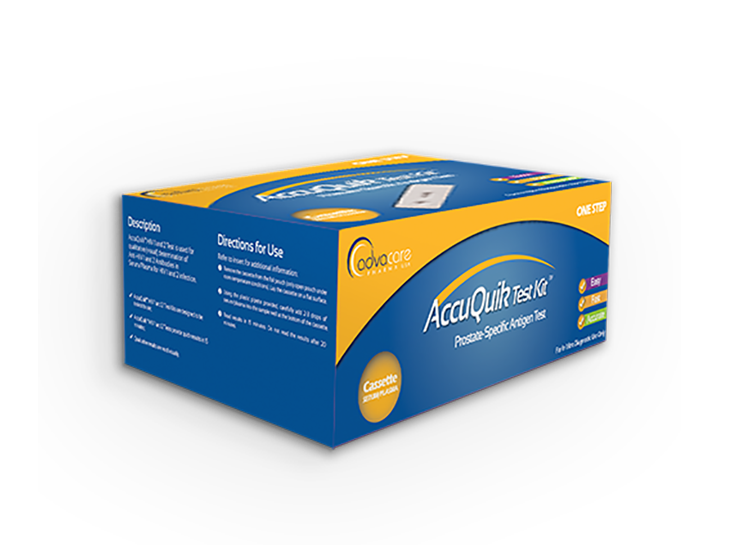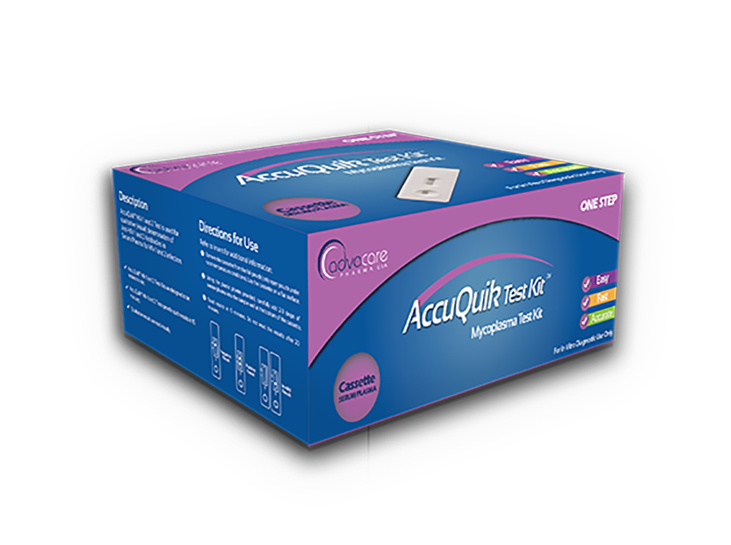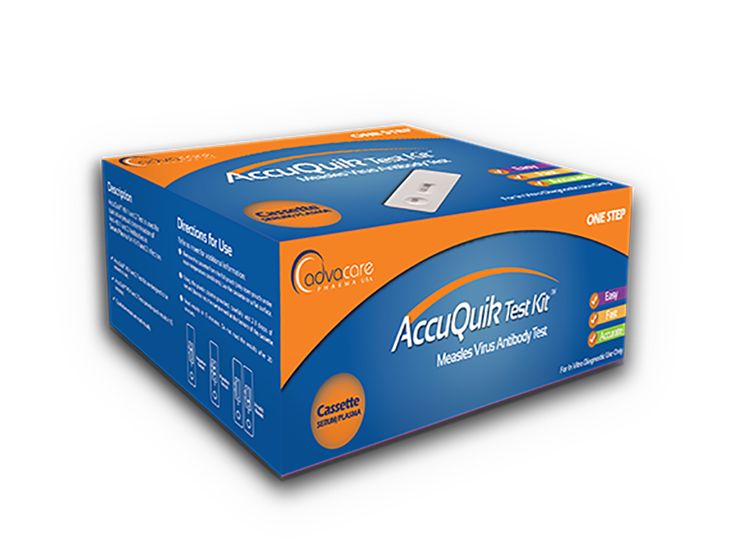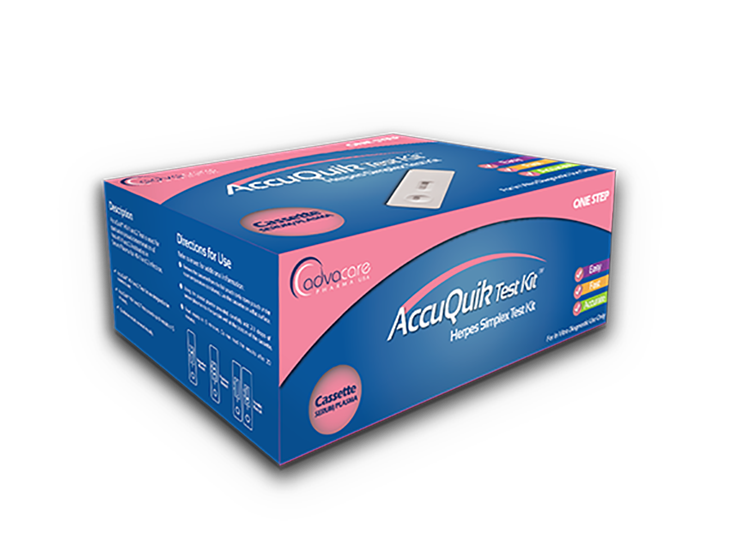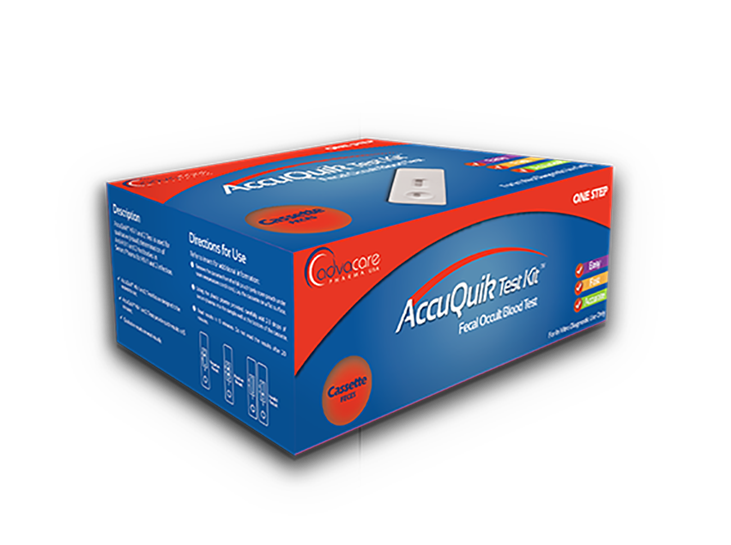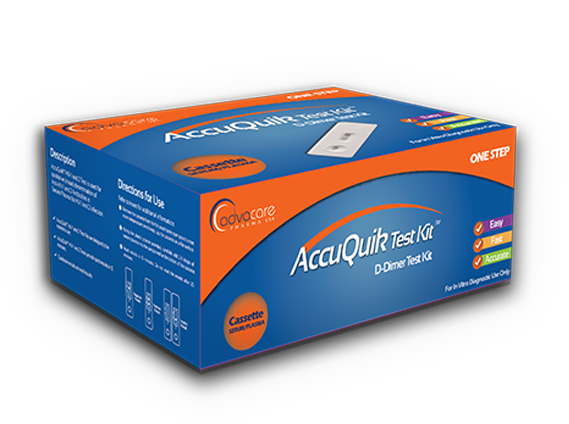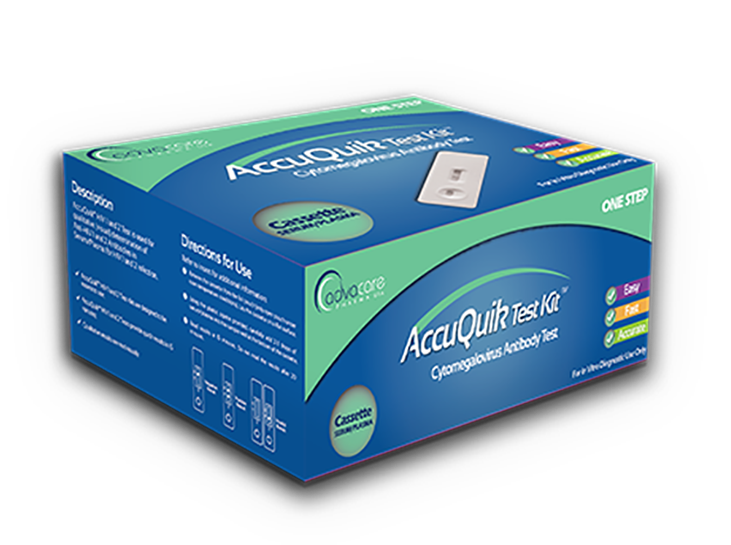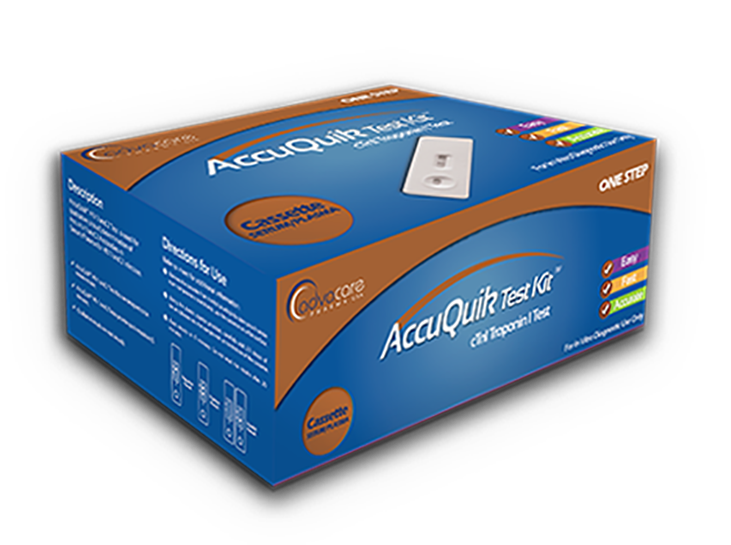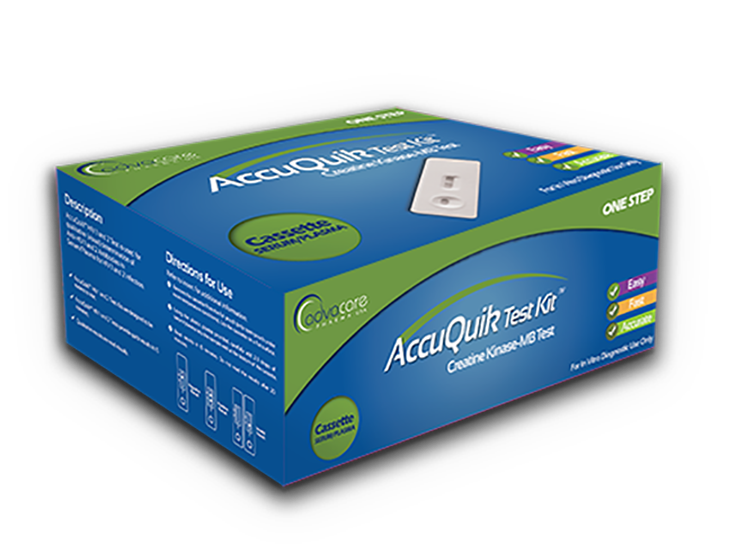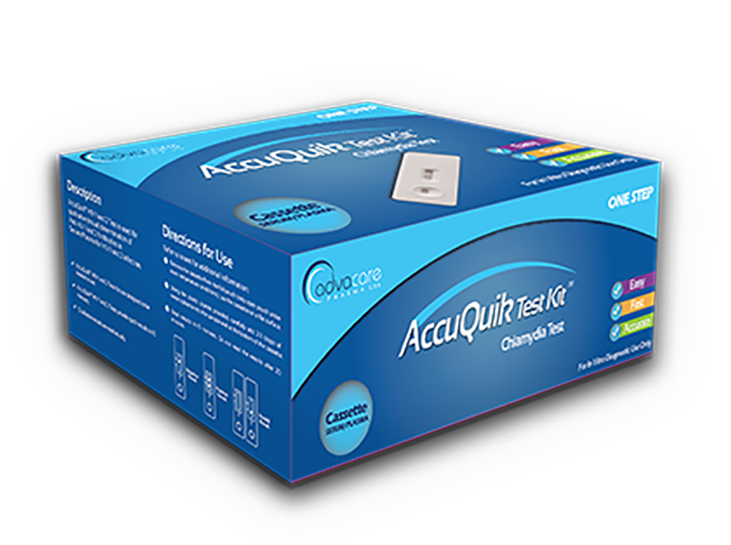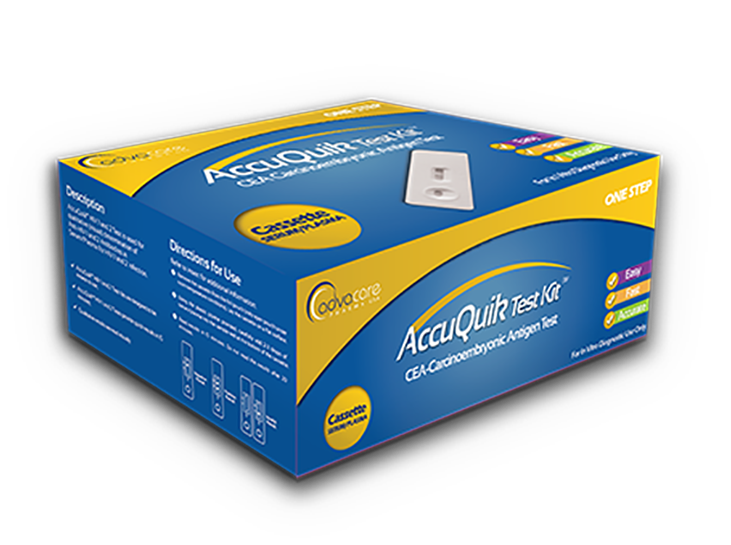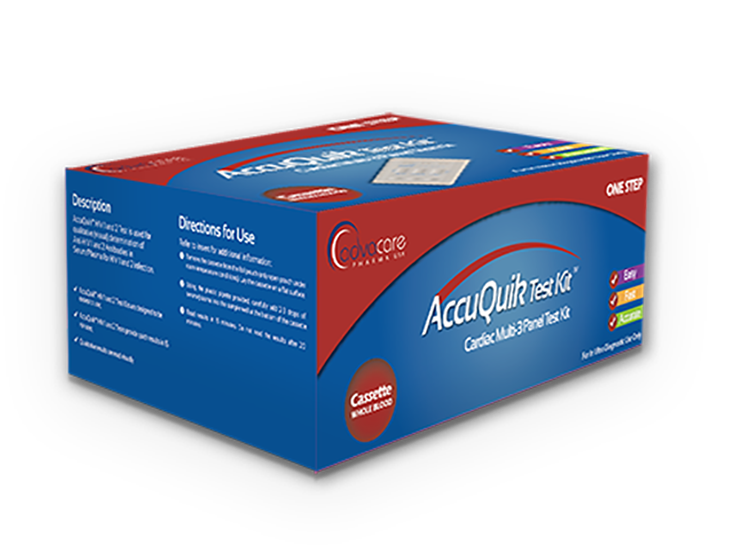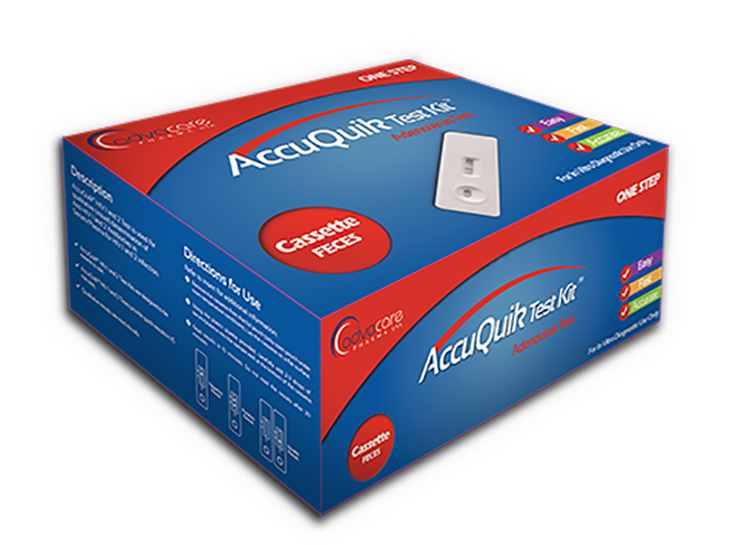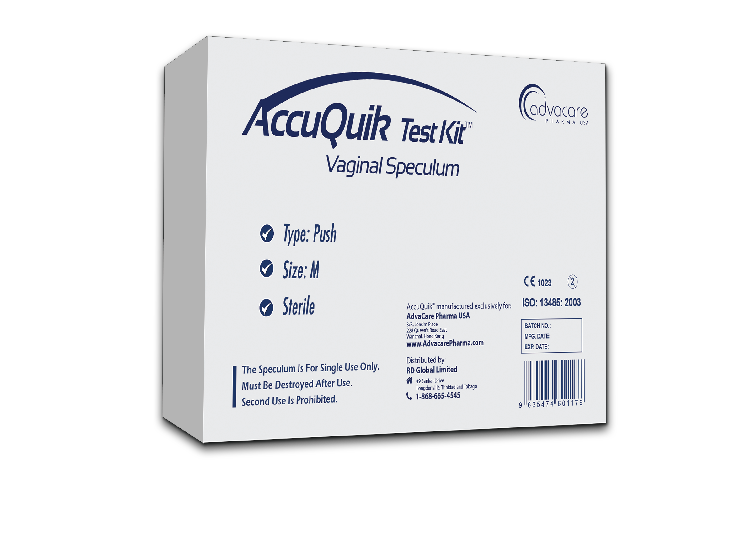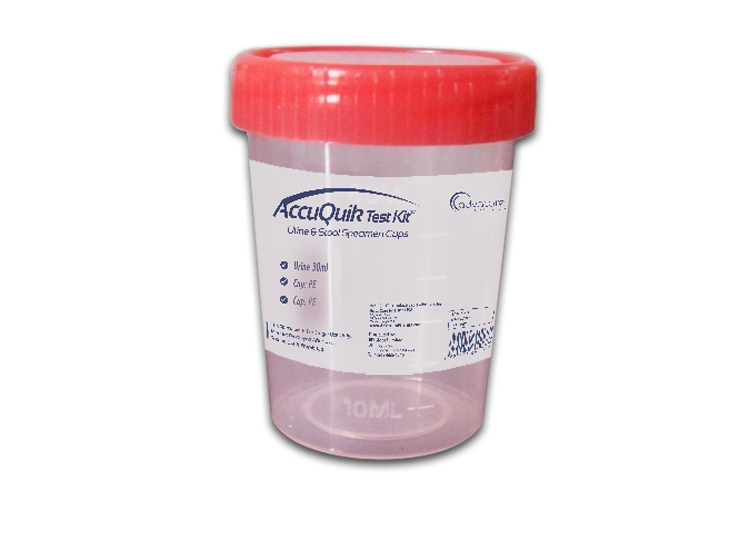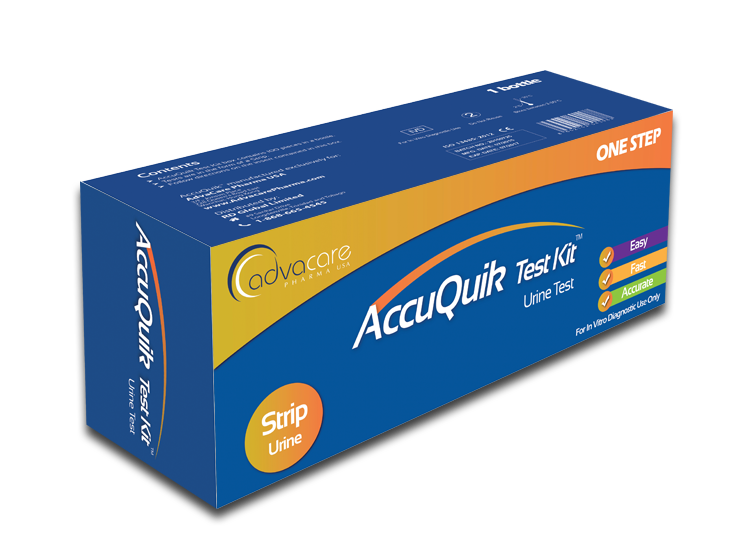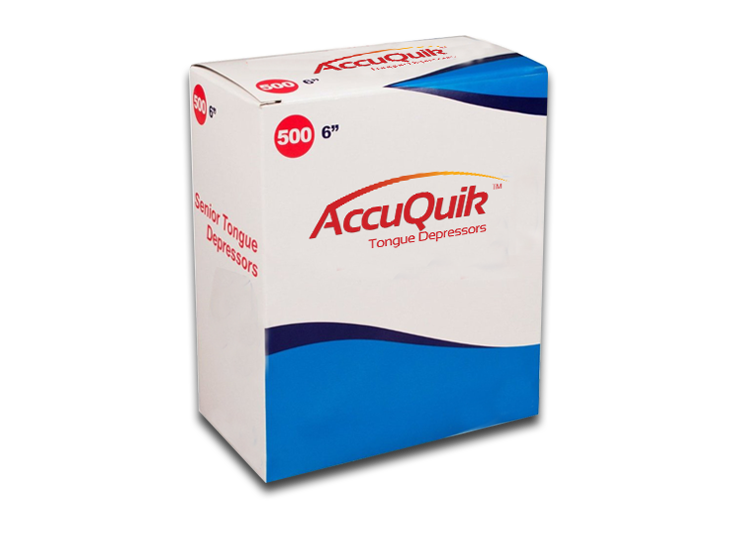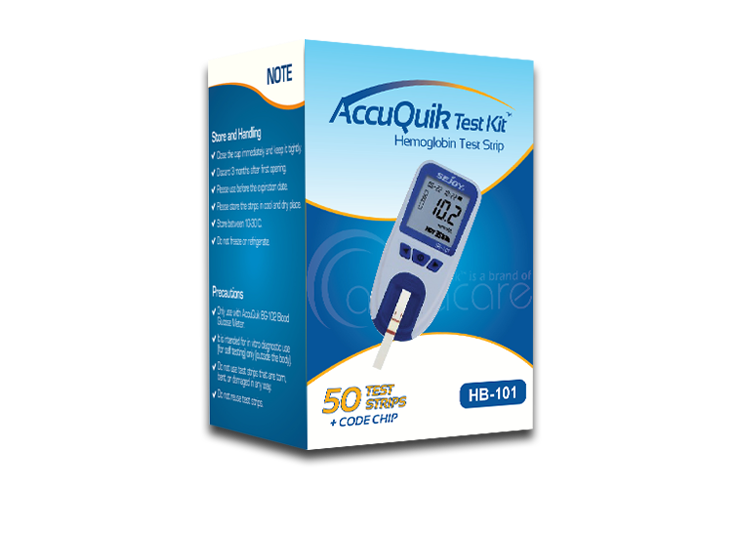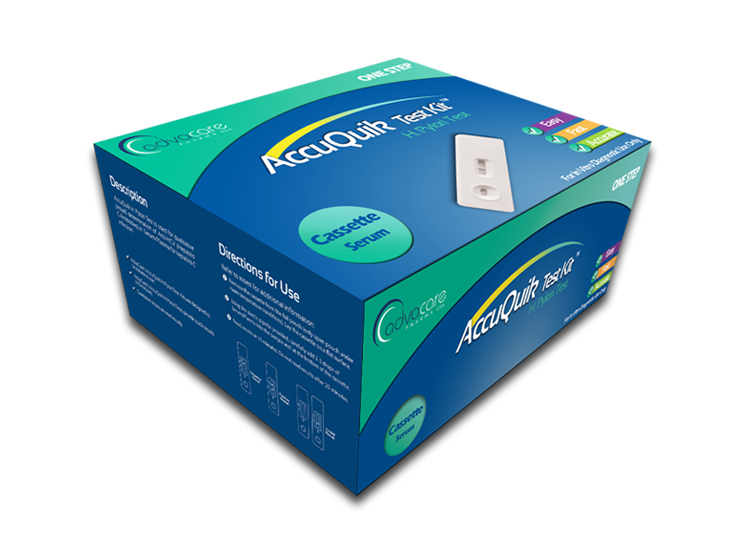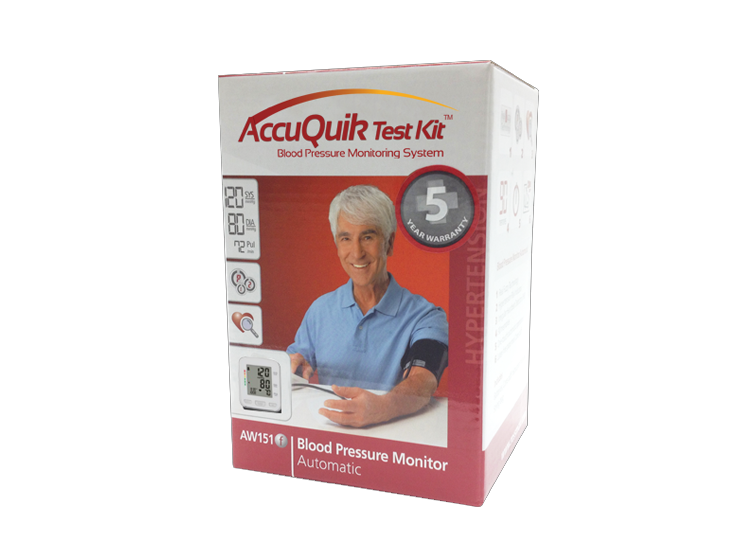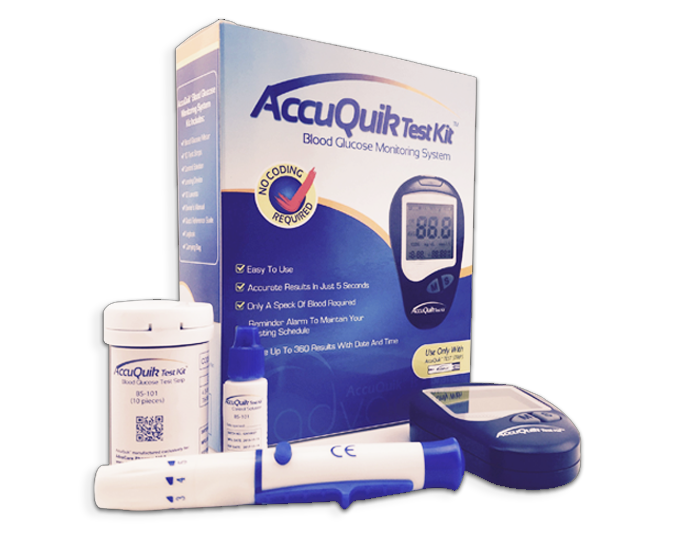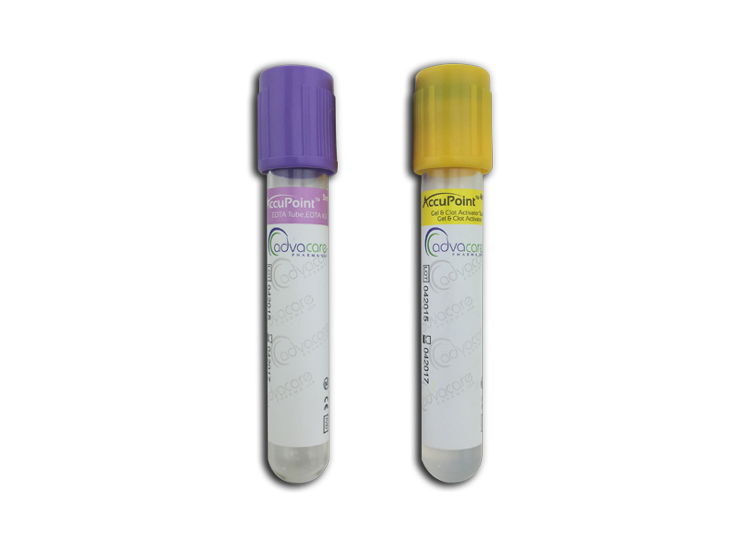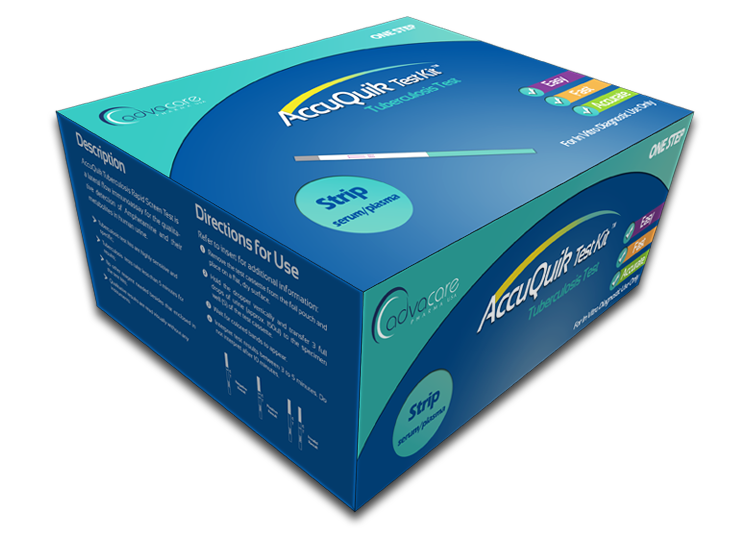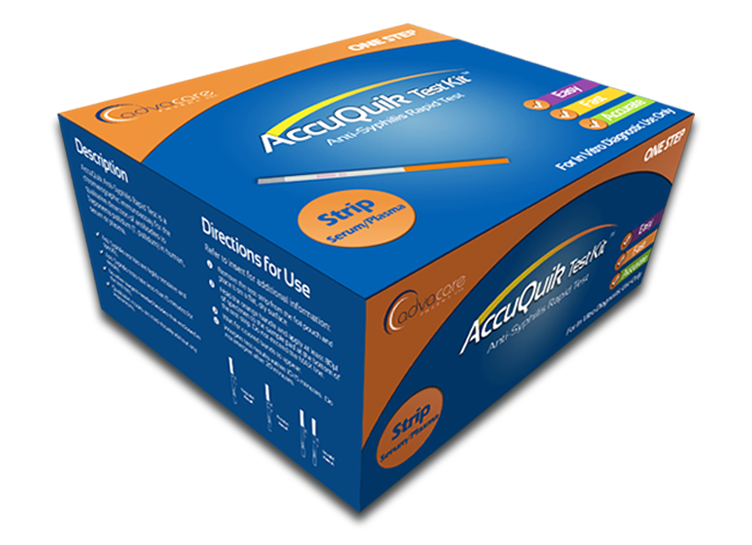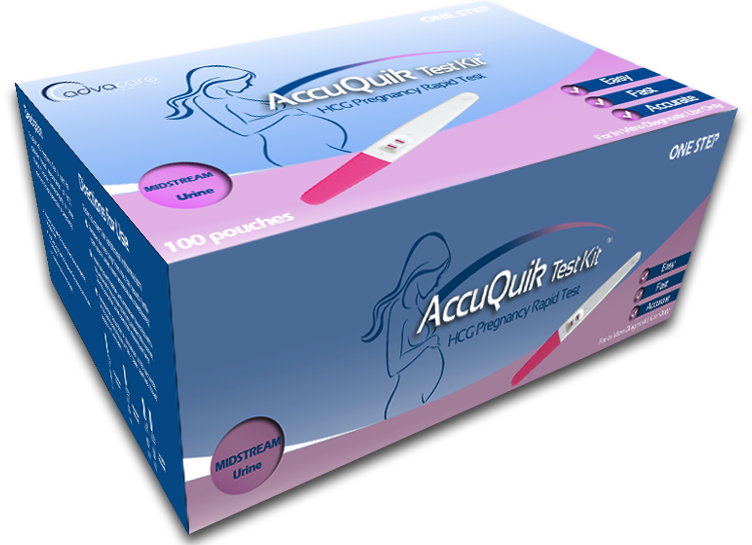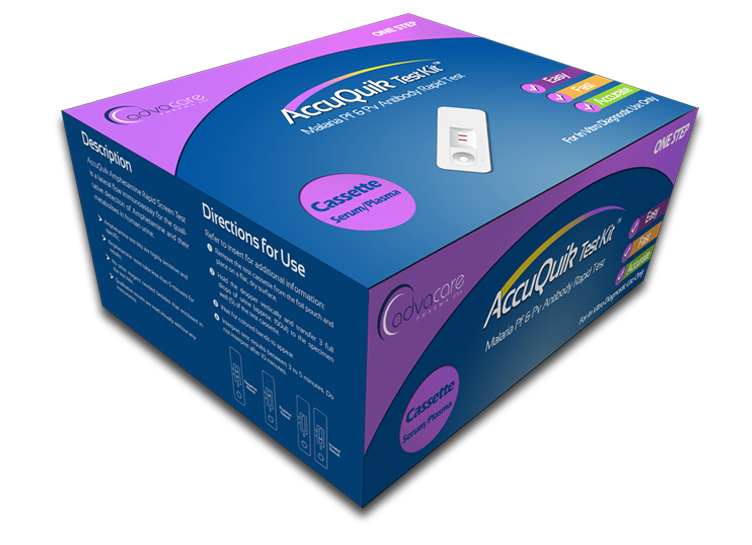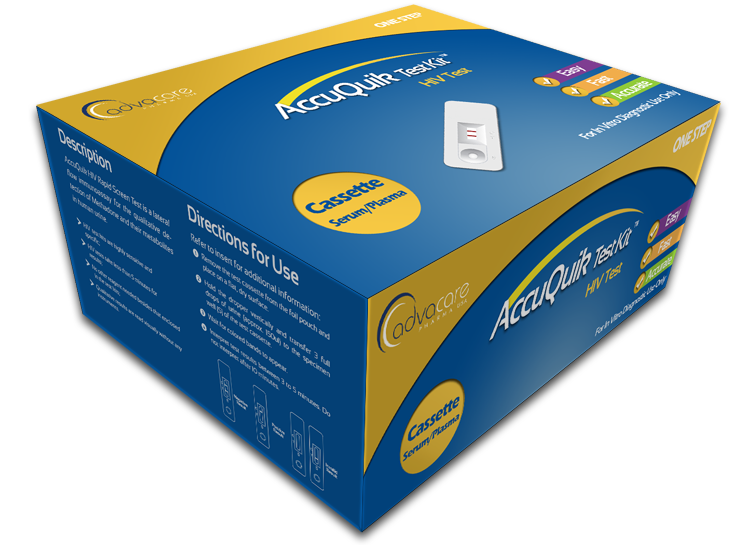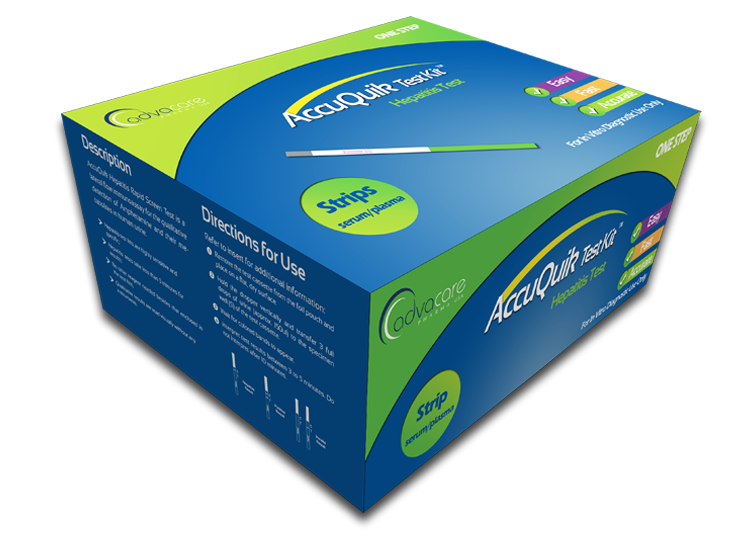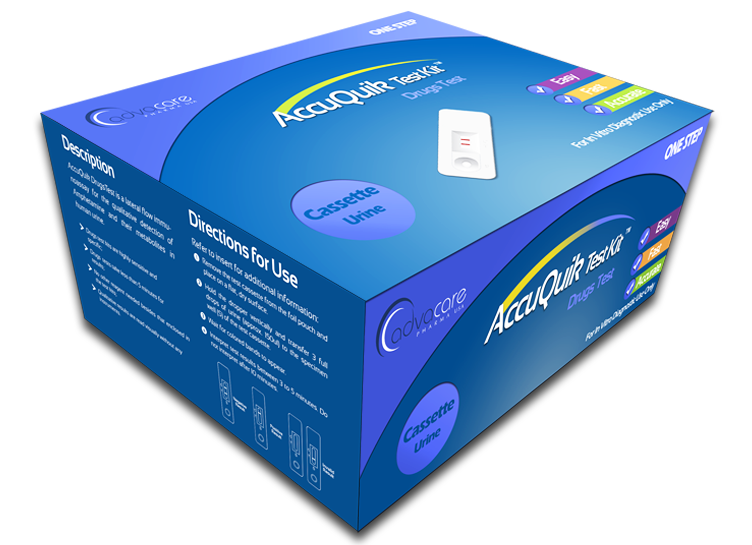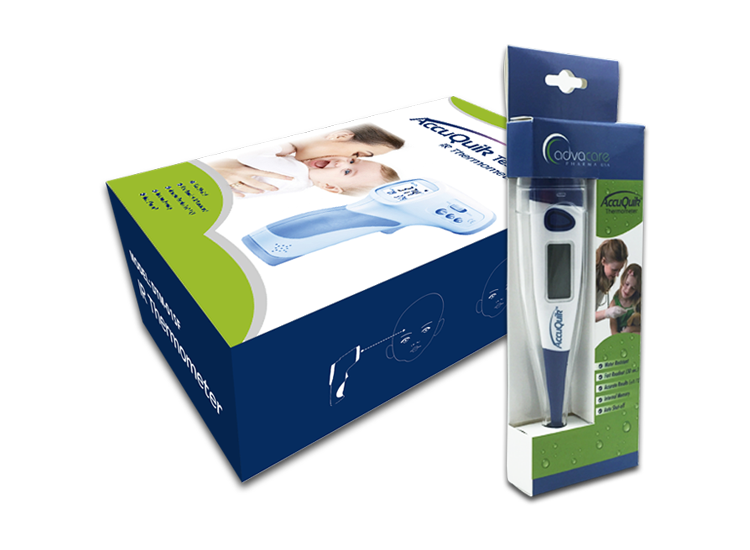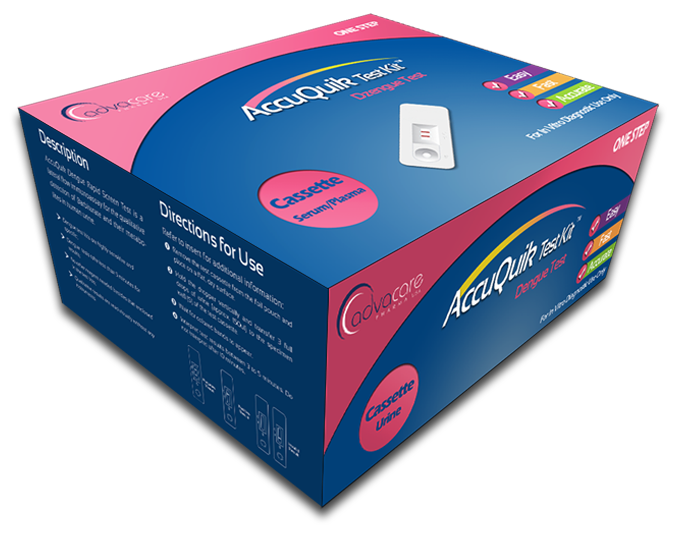More Information about the NT-proBNP Test Kit
AccuQuik™ promotes the use of NT-proBNP Test Kit.
NT-proBNP
Available as cassette
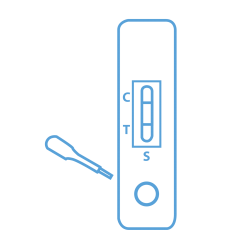
NT-proBNP Test Kit diagnostic test detects the level of NT-proBNP in human blood, plasma or serum using rapid chromatographic immunoassay. The NT-proBNP Test Kit is primarily used to detect heart failure or congestive heart failure (CHF). The test kit uses a combination of anti-NT-proBNP antibody-coated particles that detect NT-proBNP quantitatively from them specimen of whole blood, serum or plasma. The minimum detection level of the test kit is 0.45 ng/ml. A colored line will appear in the test line region when sufficient level of NT-proBNP is detected, indicating a positive result. The color of the line can appear to be more intense depending on the concentration of NT-proBNp. No line in the test line region indicates a negative result. A control line should always be present if the test was working appropriately. AccuQuik™ promotes the use of NT-proBNP Test Kit.
The Disease
NT-proBNP
NT-proBNP or the N-terminal -pro hormone B-type natriuretic peptide is a prohormones with a 76 amino acid N-terminal inactive protein that is activate to release brain natriuretic peptide (BNP). The BNP is a hormone produced by the heart and released by cardiomyocytes in heart ventricles when the ventricular blood volume is increased. BNP decreases systemic vascular resistance and central venous pressure and natriuresis are increased. The levels of BNP and NT-proBNP in the blood can be used to determine acute congestive heart failure and the prognosis of heart failure. Patients with symptomatic and asymptomatic left-ventricular dysfunction tend to have higher levels of BNP and NT-proBNP. They are also associated with coronary artery disease and myocardial ischemia.
Treatments
Heart failure is a chronic disease that needs a lifelong care. Treatment is usually given to improve signs of symptoms of heart failure, helping the patient to live longer and reducing the risk of sudden death. Medications are often prescribed depending on the symptoms, they can be prescribed one at a time or in combinations, namely: Angiotensin-converting enzyme inhibitors, angiotensin II receptor blockers, beta blockers, diuretics, aldosterone antagonists, inotropes, and digoxin. In some cases, surgery and use of specific medical devices are recommended to treat the underlying problem of the heart failure, such as: Coronary bypass surgery, heart valve repair or replacement, implantable cardioverter-defibrillators (ICDs), biventricular pacing, ventricular assist devices, or even heart transplant.

